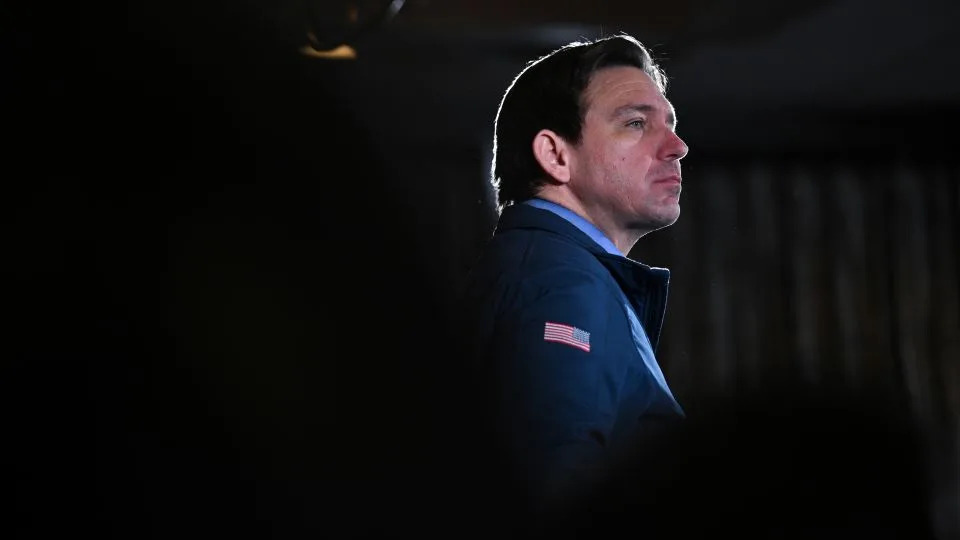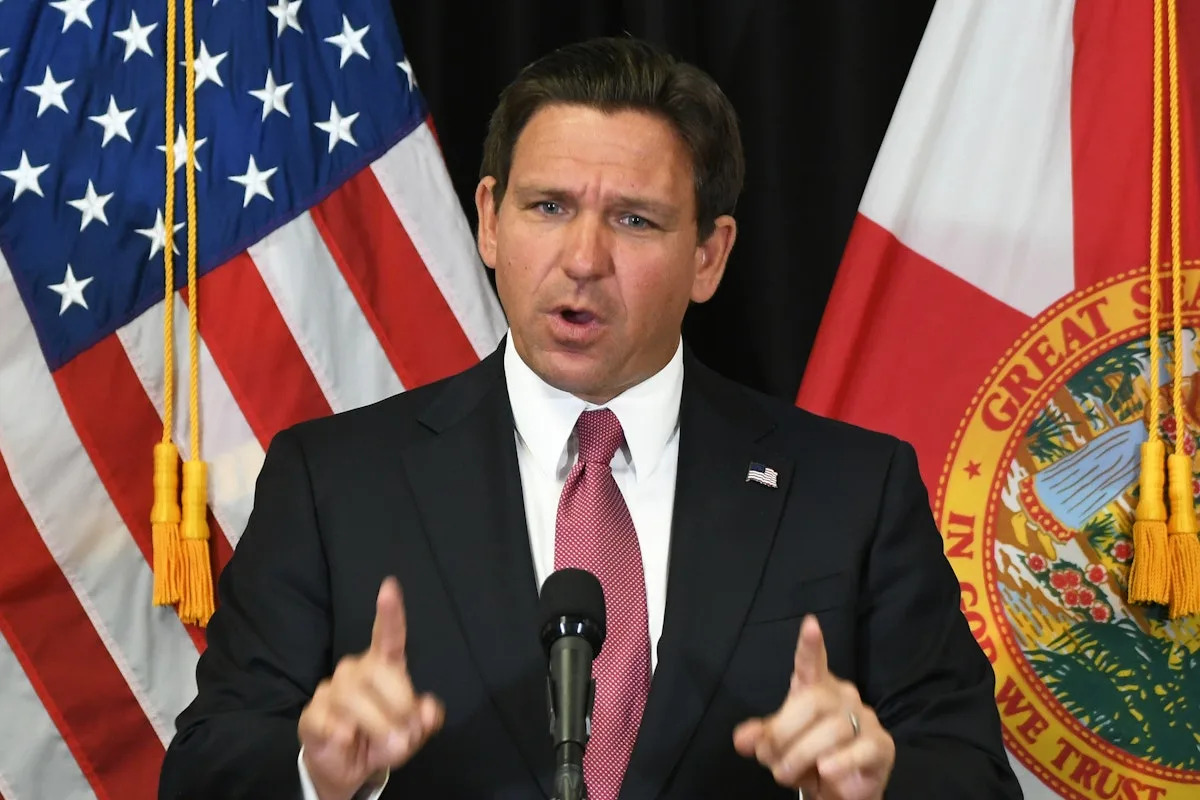Tyler Kingkade
Updated Fri, May 17, 2024
When conservative lawmakers in Florida and Texas won the fight to allow religious chaplains in public schools, they swung open the door to ministers from other faiths — including the Satanic Temple.
The demonic-sounding group, which describes itself as “nontheistic,” is using this debate and others like it to make a point about the growing encroachment of religion on public life.
It would prefer no chaplains in schools, it says, but would settle for equal representation, intentionally goading conservatives, some of whom are explicit about wanting Christianity, rather than just religion, in public education.
“If they pass these bills, they’re going to have to contend with ministers of Satan acting as chaplains within their school districts,” said Lucien Greaves, a co-founder of the Satanic Temple, who uses a pseudonym to protect him against threats. “We think the public should know in advance that that’s what the outcome of these bills can be.”The Satanic Temple, founded in 2013 and recognized as a religion by the IRS, is known for trolling the religious right by taking advantage of Christian campaigns. When Arkansas installed a statue of the Ten Commandments outside the State Capitol, the Temple unveiled its own statue of Baphomet, a goat-headed figure, there, too. It offered the Hellions Academy as an alternative to Christian studies during school hours and named a telehealth abortion clinic after Supreme Court Justice Samuel Alito’s mom.

Image: A statue of Baphomet surrounded by children. Baphomet sits on a throne adorned with a pentagram. (Hannah Grabenstein / AP file)
The Temple believes in reason, empathy and the pursuit of knowledge, its website FAQ helpfully explains. And it doesn’t worship Satan. “Satan is a symbol of the Eternal Rebel in opposition to arbitrary authority,” it states. But it’s not just a joke, supporters say. And opponents seem to agree.
One man was charged in January with a hate crime for vandalizing the temple’s altar at the Iowa State Capitol. Another was arrested and accused of throwing a pipe bomb at the group’s headquarters in Salem, Massachusetts, leaving a note that urged the group to “REPENT” and “TURN FROM SIN.” And a third was arrested this month and accused of plotting to blow up the headquarters.
“It definitely started with a kind of humorous or satirical element to it, but this is a movement with hundreds of people that’s been going for 10 years now — they’re quite serious about it,” said Joseph Laycock, a religious studies professor at Texas State University who wrote a book-length study about the group. “They’re willing to put up with death threats. They’re willing to wear bulletproof vests because Neo-Nazis have threatened to kill them if they give a public speech. People don’t normally take those kinds of risks for a joke.”
Interest in joining the Satanic Temple shot up in recent years, Greaves said, and the number of congregations more than doubled since 2021. That coincides with a decrease in the number of self-identified Christians in the U.S. and a growing movement among right-wing activists to insert conservative Christian doctrines into public policy and schools.
“The real fear of Christian nationalism is driving people into the arms of groups like the Satanic Temple,” Laycock said. “And then the fact that there are now Satanists taking to the streets of America is causing the Christian nationalists to double down, too, and making them even more determined to cling to power for as long as they can.”
The laws in Florida and Texas require school boards to vote on whether to appoint chaplains in their districts. Similar bills have been proposed in 13 other states this year. The proposals, which vary slightly, would have chaplains of various denominations serve in similar capacities as school counselors, in some cases with on-campus offices or salaries paid for by the districts.
“They are able to help the child work through their issues, work through their feelings, and also encourage them to work with their parents, in accordance with their family’s underlying religious foundations,” said Brad Dacus, president of Pacific Justice Institute, a conservative advocacy group that testified in favor of the Texas bill.
Proponents of chaplains in schools have gone on the offensive, vowing that the Satanic Temple won’t infiltrate their schools. “There will be no Satanists in Oklahoma Schools. Period,” Ryan Walters, the state’s right-wing superintendent of public instruction, recently tweeted. Florida Gov. Ron DeSantis declared at a bill signing for the new law last month that the Temple wouldn’t qualify to provide chaplains. “That is not a religion,” he said.
But legal experts warn that conservatives disregard the Satanic Temple at their own peril, because the group’s strategy of stepping into spaces intended for other religions is often effective. In 2016, the Temple began running After School Satan Clubs, seeking to start them in schools that already had Christian-based groups on campus. A federal court sided with the Temple in a legal challenge last year, and there are currently seven clubs nationwide, where children make arts and crafts, learn about animals and do science experiments.
“The Constitution is unambiguous about this,” Greaves said. “You just cannot take a religious identity and cut it out from a public accommodation. It’s against the law, the school districts will lose, they’ll have to pay the attorneys fees, and frankly, they shouldn’t be pulling their budget into this culture war grandstanding B.S.”

Lucien Greaves outside a courthouse. (Josh Reynolds for The Washington Post / Getty Images file)
One of the Temple’s first actions was to perform a “pink mass” in which gay couples made out over the grave of the mother of Fred Phelps, founder of the homophobic Westboro Baptist Church, and declared her a lesbian. The Temple has protested corporal punishment of children and sued states to argue that abortion restrictions violate their religious rights.“It is a poignant way of pushing the idea of what these governments really care about,” said Jay Wexler, a Boston University law professor who studies church-and-state issues. “Do they really care about opening up their spaces for religious pluralism, or do they actually care about just promoting one view of God and Christianity in the public space?”
People often ask why the Satanic Temple, with its lofty principles, uses such divisive names.
“If we were to name it the ‘fluffy bunnies and rainbows science club,’ or anything else, and people were to find out it is run by the Satanic Temple, we feel that that would actually cause more harm than good,” said June Everett, a Satanic Temple minister and the campaign director of the After School Satan Club. “Also, we are proud to be Satanists. So anyone that has a problem with the name or what we’re trying to do is free to just not send their kids.”
Rocky Malloy, a born-again Christian and founder of the National School Chaplain Association, said his group organized a phone bank and letter writing campaign to lobby for the Texas chaplains bill, according to video of his remarks at a fundraiser in November. Malloy called it an effort to “bring the boldness of Christ Jesus to public education” and a “legal way to bring God and prayer in school.” Malloy didn’t respond to an interview request.
The National School Chaplain Association offers certification provided by Oral Roberts University, a Christian school in Oklahoma that suspends students for being gay.
“Who is against it? Alphabet people,” Malloy said, referring to members of the LGBTQ community. “It messes up their whole agenda,” he said at the fundraiser after having declared that school counselors are “confirming gender confusion.”
The Satanic Temple isn’t the only religious group opposed to chaplains in schools. In Florida, the Florida Council of Churches, Pastors for Florida Children and the National Council of Jewish Women opposed the bill. Over 100 Texas pastors signed an open letter asking school districts not to hire chaplains, and most school boards appeared to follow their advice. Only one district had hired a chaplain by last month, according to the San Antonio Express-News.
Greaves said the Temple is waiting to learn the details of how the chaplain programs will be implemented. But the Temple plans to start with placing its first ministers in Florida and Oklahoma.
Everett, the minister, is optimistic that they’ll be welcomed into some districts. “A lot more people are now aware of the Satanic Temple and what we’re doing,” she said. “Basically fighting fire with fire.”
This article was originally published on NBCNews.com







